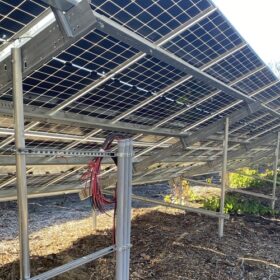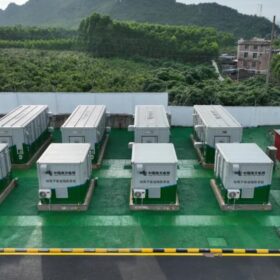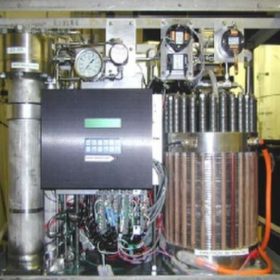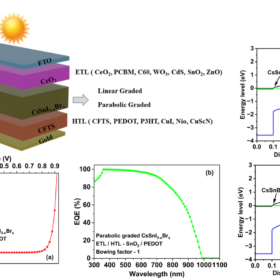US government reinstates bifacial solar module tariffs
The Office of the President has turned its focus to solar panels, announcing the removal of the bifacial solar panel Section 301 tariff exclusion and addressing issues of stockpiling during trade cases, alongside promoting the nation’s manufacturing base.
Fraunhofer ISE unveils rotary printing technique for heterojunction solar cell metallization
Researchers at the German research institute have found that indirect gravure printing for metallization of silicon heterojunction solar cells reduces silver consumption and cycle times to below 0.5 seconds per cell, while still enabling conversion efficiencies of up to 20.7%.
Bangladesh seeking consultants for 100 MW solar plant
The Bangladeshi government has issued a call for consultants to conduct a feasibility study, initial environmental examination, and environmental and social impact assessment for a 100 MW solar plant. The consultants will also be expected to survey the transmission line route for connection to the nearest grid substation.
Climate-tech investment: Sustainable growth or looming bubble?
While the first quarter of 2024 has shown a significant and potentially transformative rise in climate-tech funding, the sustainability of this growth remains uncertain.
China switches on first large-scale sodium-ion battery
China Southern Power Grid has deployed a 10 MWh sodium-ion battery in China’s Guangxi Zhuang region. It is the first phase of a 100 MWh project.
The Hydrogen Stream: India extends bidding for second round of electrolyzer incentives
Manufacturers now have until May 31 to submit bids for setting up electrolyzer manufacturing capacities in India under the second round of the government’s Strategic Interventions for Green Hydrogen Transition (SIGHT) program.
Indian scientists design lead-free perovskite solar cell with 23.61% efficiency
Developed through bandgap engineering and material design, the proposed PV device relies on a tin-based perovskite material known as CsSnI3-xBrx. It can reportedly be further designed to achieve power conversion efficiencies exceeding 24%.
Techno-economic feasibility of hydrogen storage in hydro-dominated countries
Scientists have investigated different techno-economic scenarios for using hydrogen storage in combination with hydropower and pumped hydro storage in Switzerland. They have found that hydrogen storage plays no major role under most conditions.
Navigating the future of hydrogen
Hydrogen, often lauded as a beacon of hope in the quest for a low-carbon future, stands at a pivotal crossroads. As the world grapples with the dual challenges of escalating energy demands and climate change, hydrogen presents a unique opportunity to harmonize industrial development with environmental stewardship. However, its path is fraught with complexities and obstacles that require careful navigation.
Buildings can offer gigawatts of new peak capacity as ‘batteries’
Modeling shows that shifting just one-third of the electricity consumption of commercial and institutional buildings in Australia to the middle of the day, coinciding with peak solar supply, would create almost 12 GW of new peak capacity in the National Electricity Market.















